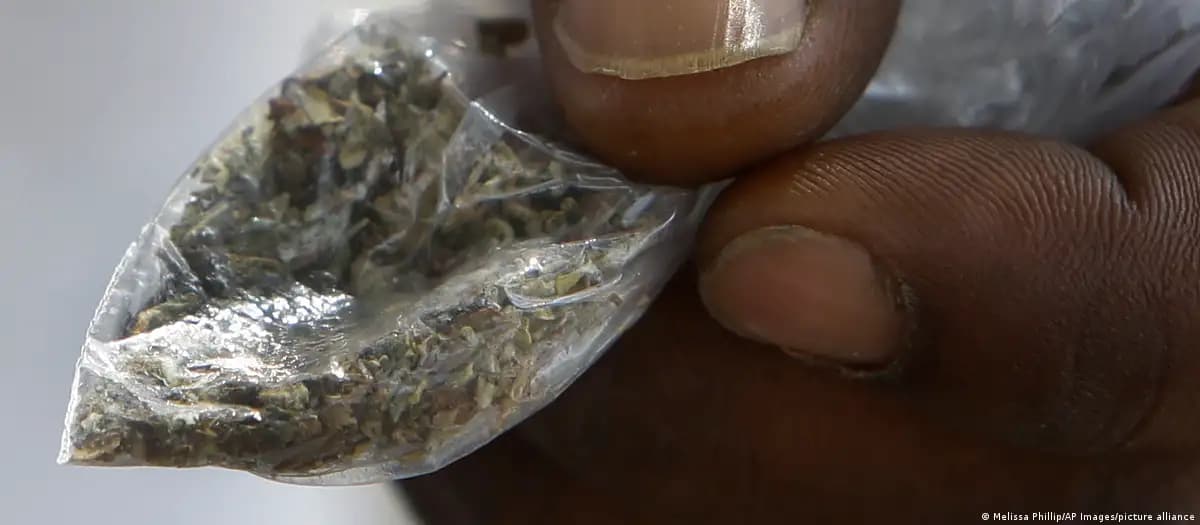YAOUNDÈ, Cameroon – As West African youths struggle with a deadly drug known as “kush,” the charitable wing of the country’s Catholic Church, Caritas, is calling for “regional and international collaboration” as a pivotal approach “in addressing the transnational nature of drug trafficking and distribution.”
“Collaborative efforts with neighboring countries and international organizations can strengthen law enforcement activities, enhance border control measures, and facilitate intelligence sharing to disrupt the supply chain of illicit substances,” said Caritas Freetown in a statement Oct. 26.
The drug epidemic comes against the backdrop of decades of turmoil.
From 1991-2002, Sierra Leone went through an 11-year civil war which left in its wake a death toll of over 50,000. It suffered an Ebola outbreak in 2014, a devastating mudslide in 2017 and then the COVID-19 pandemic.
Experts say all of this, coupled with the fact that the country’s youth unemployment rate stands at 60 percent, one of the highest in the world, has pushed many youth to seek escape. In turn, Caritas says, rampant drug use is generating a whole new cluster of problems.
“The widespread use of this substance is resulting in severe mental and social problems, with a significant correlation to unemployment and economic challenges,” Caritas says.
The Guardian quoted Dr. Jusu Mattia, acting medical superintendent at the Sierra Leone Psychiatric Teaching Hospital in Freetown, as saying that the extent of the problem can be seen by a simple walk through the city’s parks. “If you randomly select 10 people, seven of them will be on kush,” Mattia said.
“It’s so alarming,” Mattia said. “It needs attention.”
According to one local dealer quoted in the Irish Times, the drug is perceived to meet basic needs of users.
“It sends them to sleep, they enjoy themselves,” Stephanie, a dealer, told the Irish Times. “It helps them release their stress.”
Yet Father Peter Konteh, Executive Director of Caritas Freetown in Sierra Leone, said that the growing pattern of drug abuse is also fueled by some politicians, who see it as a way to bolster their ambitions.
In the run-up to June elections, Konteh issued a document titled, “Substance Abuse, a Major Factor in the Electoral Violence.” He noted that there was evidence of a rise in the importation of illicit drugs, and charged that rogue politicians were sponsoring the uptake of drugs among the unemployed youth.
“We have seen a sudden rise in an illegal drug known as ‘kush’ which is very cheap and readily available on the streets of Sierra Leone. We also realize from our research that 90 percent of admissions into Sierra Leonean psychiatric facilities are due to kush,” Konteh said.
“We realized from our research that many people interested in a political agenda will use young people to cause chaos after facilitating their access to drugs. This is especially the case as we approach elections. We have discovered that a lot of illicit drugs are being imported into the country at this time,” he explained.
In the face of all these dangers, Caritas Freetown in its Oct. 26 statement issued “a heartfelt plea” to the government to take immediate action by declaring “a health emergency and allocating resources to combat this crisis, ultimately safeguarding the nation’s youth.”
The church organization called on the government to treat the issue as “a national priority,” and to “declare a health emergency, signifying its dedication to protecting the well-being and future of the nation’s youth.”
In addition to declaring a health emergency, Caritas says it is paramount to invest in prevention and rehabilitation programs.
This includes establishing accessible and affordable treatment facilities, launching comprehensive public awareness campaigns, and implementing educational initiatives aimed at enlightening young people about the dangers associated with kush consumption.
Caritas further underscored the need to address the root causes of the crisis such as unemployment and economic challenges, and noted that “the government can foster an environment that discourages drug use while providing opportunities for healthier alternatives.”
The organization said it was ready to lend its “unwavering support and collaborate with the government in its endeavors to combat this pressing issue.”
Dr. Carol Labor, a special adviser for mental health, says the government is very concerned about the high rate of consuming the drug and announced that a mental health secretariat is in the process of being established.
She said the government is working at finding reliable data on the drug’s composition and its long-term effects on consumers, as well as how to improve treatment.
“Together, we can create a society where the youth are nurtured, protected, and empowered to break free from the grip of addiction and poverty,” Caritas said.














